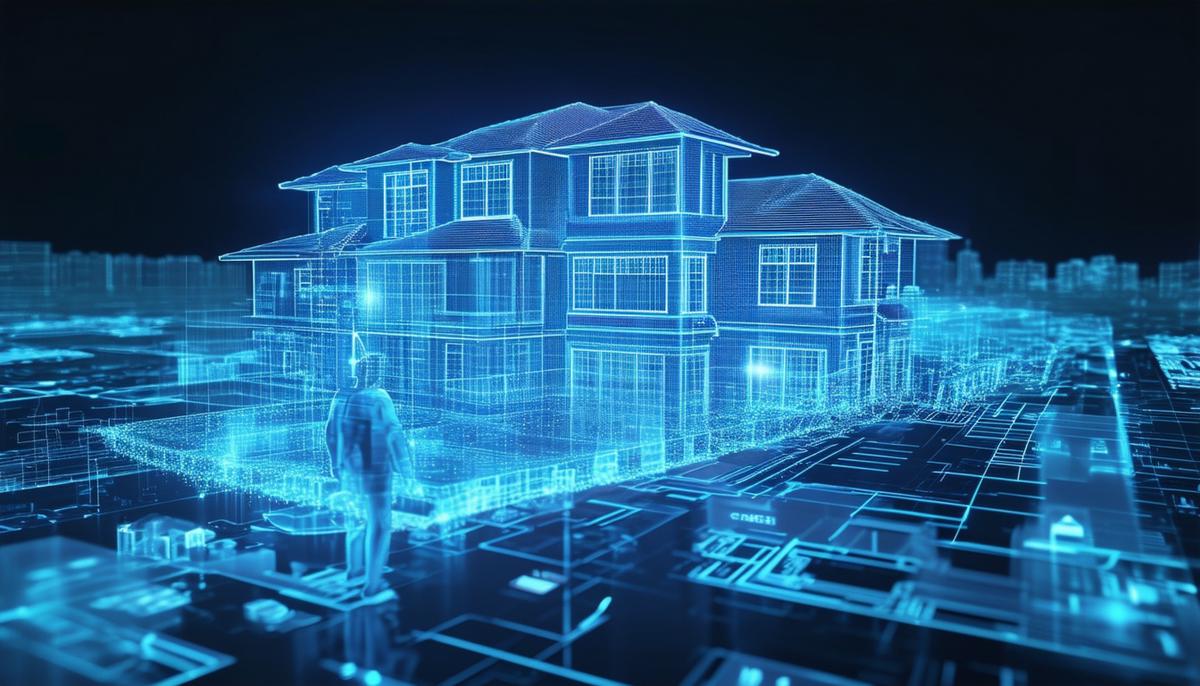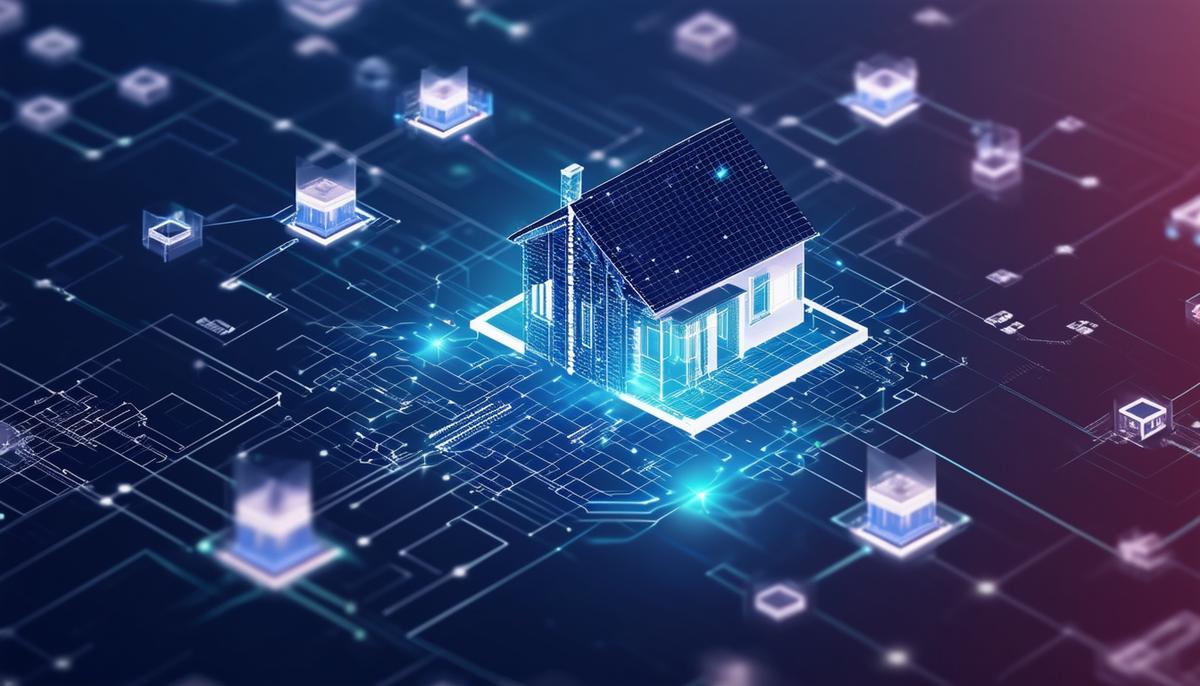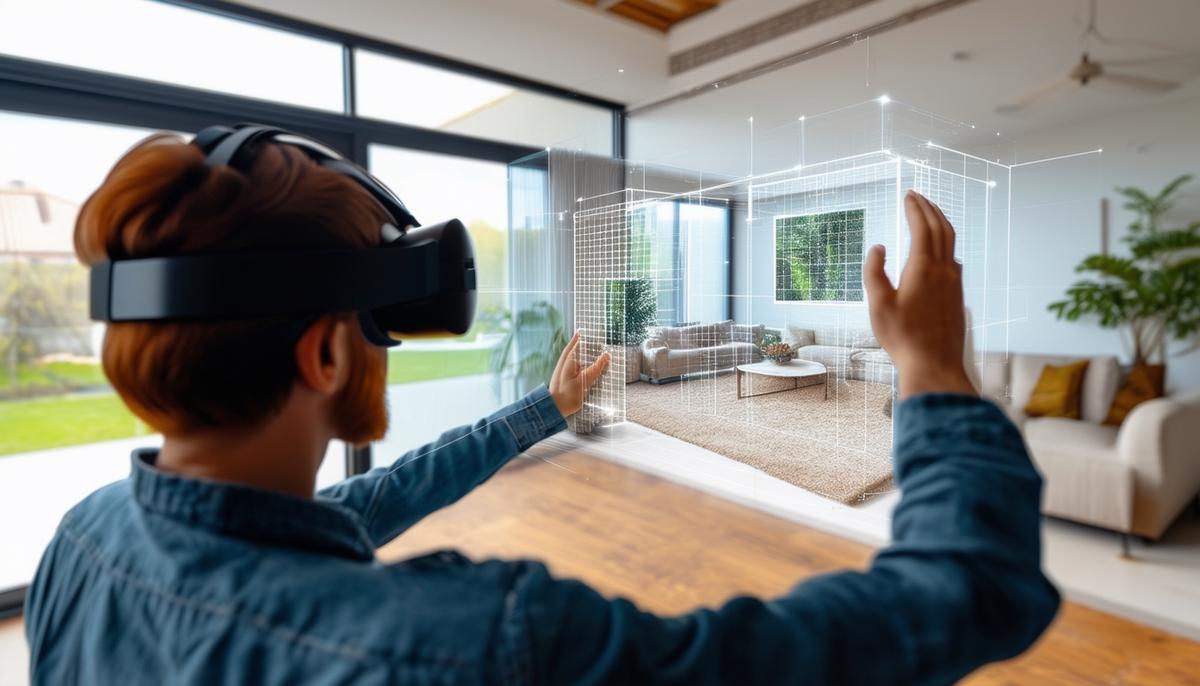Real Estate and Artificial Intelligence
AI in real estate is transforming the industry. Predictive analytics, powered by AI, sifts through vast amounts of data to forecast property values and investment opportunities. This data-driven approach helps identify market trends before they become widely known, giving investors and agents a competitive edge.
In property valuations, AI acts as a precise tool. Algorithms analyze factors like:
- Location
- Size
- Local economic conditions
This level of detail reduces biases that sometimes affected traditional appraisals, offering more reliable estimates.
AI is also revolutionizing client interactions. Chatbots offer 24/7 customer service, providing property recommendations and answering queries at any time. These AI-powered assistants learn from each interaction, continually improving their helpfulness.
Efficiency in real estate transactions has significantly improved with AI. From streamlining property searches to expediting paperwork, AI speeds up processes that once took considerable time. Automated emails and virtual tours are just the beginning – AI can now manage entire sales funnels seamlessly.
For real estate professionals, embracing AI tools can provide a significant advantage. Using AI to analyze market trends allows for quicker identification of changes and opportunities. AI-enhanced valuations build trust with clients, while integrated AI in client service creates a smooth, memorable experience.

Blockchain's Impact on Real Estate
Blockchain technology is bringing unprecedented transparency to real estate transactions. It functions like a digital ledger that all parties can view but cannot alter, ensuring that every step of a property deal is clear and verifiable. This level of transparency builds trust and reduces the potential for disputes.
Smart contracts, a key feature of blockchain, are revolutionizing how agreements are executed in real estate. These self-executing contracts automatically fulfill their terms when predetermined conditions are met, streamlining the process and reducing the need for intermediaries.
Blockchain is democratizing real estate investment through tokenization. This process converts property ownership into digital tokens, allowing investors to purchase fractions of real estate assets.
This innovation opens up real estate investment to a broader range of people, making it more accessible than ever before.
The impact of blockchain on real estate is significant, offering a future where property transactions are more transparent, efficient, and accessible to all.

Virtual and Augmented Reality in Property Viewing
Virtual Reality (VR) and Augmented Reality (AR) have transformed property viewing, making it possible to tour homes from anywhere in the world. This technology allows potential buyers to explore properties in detail without leaving their current location, saving time and expanding the reach of property listings.
For sellers, VR and AR mean their properties are accessible 24/7 to a global audience. This increased exposure can lead to:
- Faster sales
- Potentially better offers
- Showcasing homes in the best light
- Highlighting key features that might be missed in photos alone
Buyers benefit from the ability to view multiple properties quickly and easily. They can get a feel for the layout and flow of a home, zoom in on specific details, and even visualize potential renovations or furniture placements using AR technology.
These technologies are particularly useful for:
- Long-distance buyers
- International investors
- Those with busy schedules
They provide a comprehensive view of a property that goes beyond static images, helping buyers make more informed decisions before committing to in-person viewings.
AR takes the experience a step further by allowing buyers to superimpose their personal style onto a property. They can virtually change wall colors, place furniture, or visualize renovations, helping them see the potential in a space.
VR and AR are not just convenient; they're changing how we interact with and experience potential homes, making the property search process more engaging and efficient.

In the dynamic world of real estate, embracing technological advancements is crucial. AI, blockchain, VR, and AR are reshaping how we buy and sell properties. By welcoming these innovations, you can enhance your real estate experience, making it more efficient, transparent, and enjoyable.
- National Association of REALTORS®. Technology in Real Estate. 2023.
- McKinsey & Company. The impact of artificial intelligence on the real estate industry. 2022.
- Federal Housing Finance Agency. Office of Financial Technology (Fintech). 2023.

